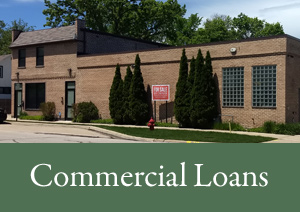Post
Is it Easier to Get a Mortgage Through a Bank or Mortgage Broker?

When it’s time to buy a home, one of the biggest decisions you’ll face is how to get your mortgage. You can go directly through a bank or use a mortgage broker. Both options have their advantages and challenges, and understanding them can make the process smoother for you.
Understanding Banks and Mortgage Brokers
Banks are large financial institutions that provide a variety of services, including mortgage loans. When you apply for a mortgage at a bank, you are dealing directly with the lender. Banks have their own set of products and interest rates, which they offer to their customers.
Mortgage brokers, on the other hand, act as intermediaries between you and multiple lenders. They don’t lend money themselves but help you find the best mortgage product by comparing different options available in the market. Brokers work with a network of banks, credit unions, and other lenders to find a mortgage that fits your needs.
Comparing the Processes
Application Process at Banks
Applying for a mortgage at a bank involves several steps. You’ll typically start by filling out an application form, either online or in person. The bank will ask for various documents like proof of income, employment history, and credit reports. They use this information to assess your financial stability and determine the loan amount you qualify for.
Application Process with Mortgage Brokers
When you work with a mortgage broker, they handle much of the paperwork for you. You provide the necessary documents to the broker, who then shops around to find the best mortgage options from different lenders. This can save you time and effort, as you don’t have to fill out multiple applications.
Time and Effort
Efficiency at Banks
Banks can be efficient, especially if you already have an account with them. Your existing relationship might help speed up the approval process. However, if your application is complex, the process can take longer due to strict regulations and internal procedures.
Efficiency with Mortgage Brokers
Mortgage brokers often streamline the process by doing the legwork for you. They handle the paperwork and communicate with lenders on your behalf, which can make the process quicker and less stressful. Since they work with multiple lenders, they might find a suitable loan faster than if you approached each lender yourself.
Financial Considerations
Interest Rates and Fees at Banks
Banks offer competitive interest rates, especially to existing customers. They might also offer lower fees or waive certain costs. However, the rates can be rigid, and there’s less room for negotiation.
Interest Rates and Fees with Mortgage Brokers
Mortgage brokers have access to a wide range of lenders, which allows them to compare different rates and find competitive options. They can often secure better rates than what you’d get on your own. However, brokers charge a fee for their services, which can add to your overall costs.
Loan Products
Variety at Banks
Banks offer a range of mortgage products, but their selection is limited to their own offerings. While they might have fixed and variable-rate options, the customization is generally less flexible compared to what a broker can offer.
Variety with Mortgage Brokers
Brokers have access to a vast array of mortgage products from different lenders. This variety can be beneficial if you have specific needs or if your financial situation is unique. They can help you find specialized loans that a single bank might not offer.
Approval Likelihood
Credit Score and Financial History with Banks
Banks have strict lending criteria and prefer borrowers with strong credit scores and stable financial histories. If your credit score is less than stellar or if you have irregular income, getting a mortgage directly through a bank can be challenging.
Credit Score and Financial History with Mortgage Brokers
Mortgage brokers work with multiple lenders, including those who specialize in non-traditional borrowers. They can find lenders willing to work with lower credit scores or unusual financial situations, increasing your chances of approval.
Special Circumstances
Handling Non-Standard Applications at Banks
Banks can be inflexible when it comes to non-standard applications. Self-employed individuals or those with irregular income might face hurdles due to the rigid approval criteria.
Handling Non-Standard Applications with Mortgage Brokers
Brokers are adept at finding solutions for non-standard applications. They can match you with lenders who understand the complexities of self-employment or irregular income, making it easier to get approved.
Customer Service and Support
Personalized Service at Banks
Banks offer customer service, but it might not always be personalized. If you have an established relationship with a bank, you might receive better service, but new customers may not get the same level of attention.
Personalized Service with Mortgage Brokers
Mortgage brokers provide a high level of personalized service. They guide you through the entire process, offer advice, and answer your questions. This hands-on approach can be very reassuring, especially for first-time homebuyers.
Availability and Accessibility
Branch Availability at Banks
Banks have physical branches where you can meet with loan officers during business hours. This can be convenient, but it also means you have to work around their schedule.
Availability with Mortgage Brokers
Mortgage brokers are often more flexible with their time, offering appointments outside regular business hours. This flexibility can be a significant advantage if you have a busy schedule.
Pros and Cons
Pros of Banks
- Direct lending
- Potentially lower fees
- Established relationships can be beneficial
Cons of Banks
- Limited loan products
- Stricter criteria
- Less personalized service
Pros of Mortgage Brokers
- Access to multiple lenders
- Personalized service
- Flexible approval criteria
Cons of Mortgage Brokers
- Broker fees
- Potentially higher interest rates
- Less direct control
Conclusion
Choosing between a bank and a mortgage broker depends on your individual circumstances. Banks might offer lower fees and the convenience of an established relationship, but they can be rigid with their lending criteria. Mortgage brokers provide access to a wide range of products and personalized service, making them a good choice for those with unique financial situations or those who value convenience and support.
For most people, it’s wise to explore both options. Speak to your bank and consult with a mortgage broker to see which route offers the best terms and fits your needs. Remember, getting a mortgage is a significant financial decision, and taking the time to research your options can save you money and stress in the long run.
If you’re looking for expert advice and personalized service, consider reaching out to 1st Eagle Mortgage. We’re here to help you navigate the complexities of getting a mortgage and find the best solution for your needs.
No comments yet




